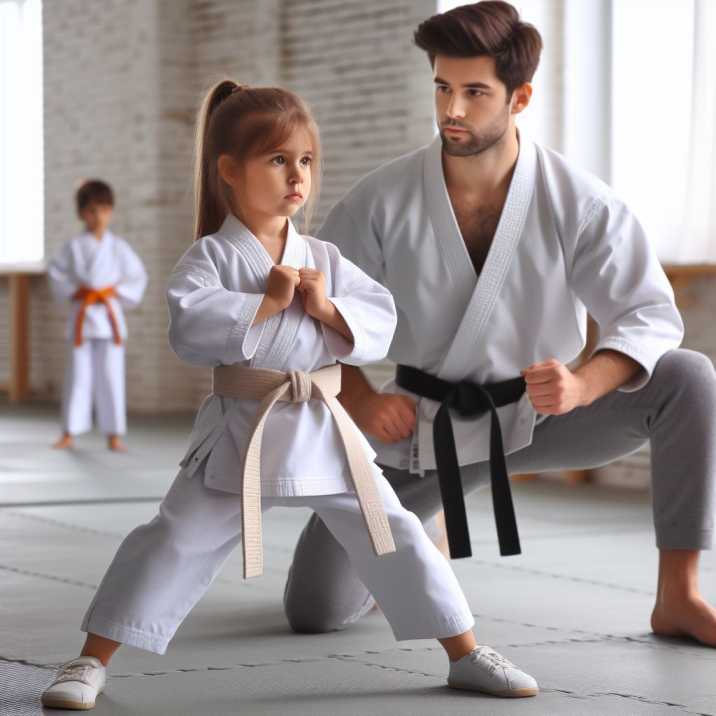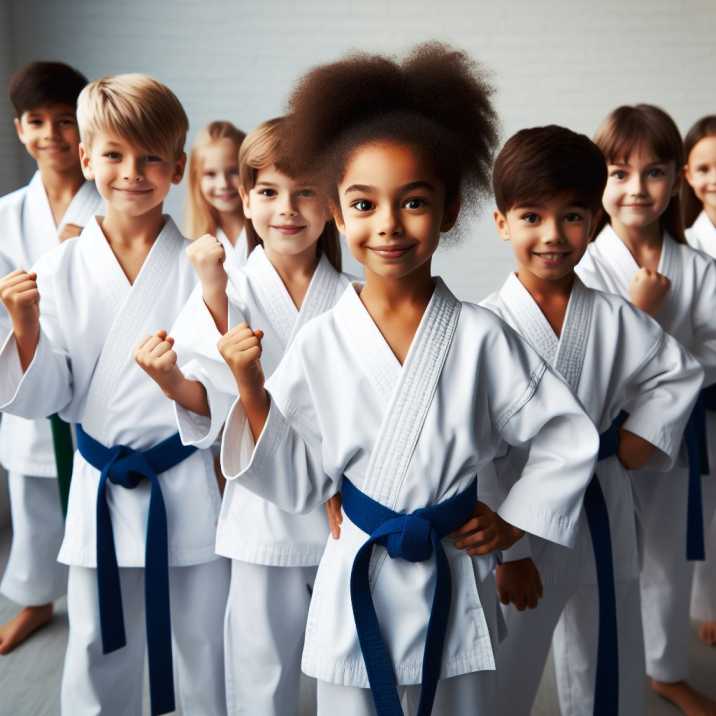What Age Can Kids Start Karate?
Table of Contents
Introduction:
In the dynamic world of martial arts, parents often contemplate when is the right time to introduce their children to the discipline of karate. This article aims to provide a comprehensive guide, answering the burning question: “What age can kids start karate?” Let’s delve into the benefits, challenges, and frequently asked questions surrounding this intriguing topic.
The Ideal Age for Karate: Unveiling the Mystery
Parents eager to involve their children in karate may wonder about the optimal age to commence this martial arts journey. While individual readiness varies, the general consensus among martial arts experts suggests that kids as young as 4 or 5 years old can start karate. At this age, children typically exhibit the physical and cognitive development needed to grasp basic techniques and instructions.

Benefits of Starting Early: Developing Character and Skills
Commencing karate at a young age offers a myriad of advantages for children. Beyond physical fitness, karate fosters discipline, focus, and respect. Moreover, it enhances motor skills, coordination, and self-esteem. The structured environment of a karate class instills valuable life skills, shaping young minds for the challenges ahead.
Challenges and Considerations: Tailoring Karate for Kids
While the benefits are abundant, introducing kids to karate requires careful consideration of their unique needs. Instructors specializing in children’s karate emphasize the importance of age-appropriate classes, incorporating engaging activities to maintain interest. Balancing discipline with fun is key to keeping young karate enthusiasts motivated and committed.
Physical Readiness
Understanding the physical readiness of a child is crucial when contemplating the initiation of karate. Martial arts classes for younger children typically focus on basic movements, coordination exercises, and building foundational strength.
Cognitive Development
Karate demands a degree of focus and understanding of instructions. Therefore, assessing a child’s cognitive development is vital. Instructors often tailor their teaching methods to suit the cognitive abilities of young participants, ensuring a positive and effective learning experience.
Emotional Preparedness
Martial arts involves self-discipline and controlled emotional responses. Evaluating a child’s emotional preparedness is essential to ensure a positive and supportive environment for their karate journey.
Information-Based Table:
To aid quick reference, let’s compile a visually appealing and informative table summarizing the key considerations for introducing what age can kids start karate?
| Criteria | Age Group |
|---|---|
| Physical Readiness | 4-5 years old |
| Cognitive Development | 5-6 years old |
| Emotional Preparedness | 6-7 years old |
Conclusion:
In conclusion, the question of “
What Age Can Kids Start Karate?” is nuanced, with the ideal age often ranging from 4 to 6 years old. Initiating children into the world of karate brings forth numerous benefits, including physical fitness, enhanced discipline, and improved self-esteem. However, it’s crucial to consider a child’s physical, cognitive, and emotional readiness, ensuring a positive and tailored experience.
As parents embark on this martial arts journey with their children, the insights provided in this article serve as a comprehensive guide. From the ideal age to the benefits and challenges, every aspect has been explored. Remember, the key is to strike a balance between discipline and enjoyment, fostering a love for karate that lasts a lifetime.

FAQs: Your Burning Questions Answered
- Q: What age is suitable for kids to start karate? A: While individual readiness varies, most experts recommend starting around 4 to 5 years old.
- Q: Are there specific classes for different age groups? A: Yes, many dojos offer age-appropriate classes to cater to the unique needs of children at various developmental stages.
- Q: How can I assess my child’s readiness for karate? A: Look for indicators like physical coordination, attention span, and the ability to follow simple instructions.
- Q: What are the benefits of starting karate early? A: Early karate initiation promotes physical fitness, discipline, focus, and self-esteem in children.
- Q: How do instructors keep karate classes engaging for kids? A: Experienced instructors incorporate fun activities and games, balancing discipline with enjoyment.
- Q: Is there a risk of injury in kids’ karate classes? A: With proper supervision and age-appropriate activities, the risk of injury is minimized.
- Q: Can karate help improve a child’s behavior? A: Yes, karate instills discipline and respect, contributing positively to a child’s behavior.
- Q: How long does it take for a child to progress in karate? A: Progress varies, but consistent practice and dedication usually lead to noticeable improvements.
- Q: Is there a recommended frequency for kids’ karate classes? A: Most instructors suggest 2-3 classes per week to maintain consistency and foster skill development.
- Q: Are there any mental health benefits for kids in karate? A: Yes, karate promotes mental resilience, stress management, and improved focus.
- Q: Can kids with special needs participate in karate? A: Many dojos offer inclusive classes, adapting teaching methods to accommodate children with special needs.
- Q: How can parents support their child’s karate journey? A: Encourage regular practice, attend classes, and maintain open communication with both the child and the instructor.


